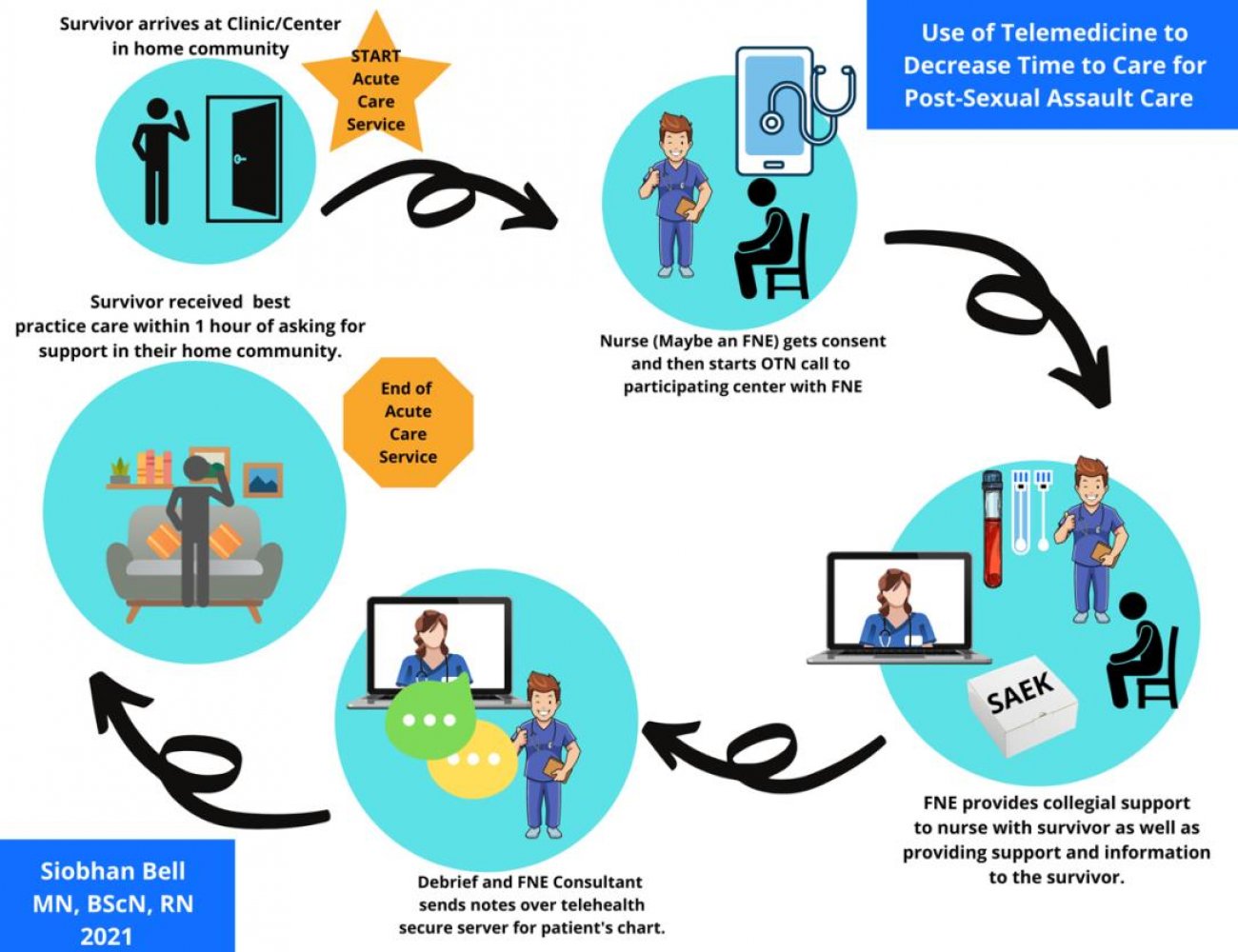
Working with the Consultant Telehealth Forensic Nurse to Provide Acute Post-Sexu…
Lesson by siobhanbell1 · 3 years ago ·
Instructional Summary
This learning module contains a number of resources to help prepare you to work with the consultant forensic nurse using Telehealth to provide acute post-sexual assault care for the adult client.Content Blocks
Welcome to this learning module, supporting the quality improvement project "Use of Telemedicine to Decrease Time to Care for Post-Sexual Assault Survivors".
The principal investigator is Siobhan Bell. She can be contacted at sbell85@my.gcu.edu or 1-647-388-0051.
Project Site: Thunder Bay Regional Health Sciences Center - Sexual Assault/Domestic Violence Treatment Center Team led by Lorena Beaulieu. She can be reached by 1-807-684-6751 or lorena.beaulieu@tbh.net.
As a nurse, working in an area that cares for clients who have been sexually assaulted, it is understandable, that you want to provide all the care they need without having to send them hours away from their home community. Clients also wish to see their care provided closer to home. To do this, this quality improvement project is seeking to use telehealth through the Ontario Telemedicine Network to provide you with the expert consultation of forensic nurses, in order to walk you and your patient through the specialty acute care needed by these clients at that moment. To do this, you will need to know a little bit about what we do as forensic nurses and alot about this client population.
The following is an educational module designed by the Ontario Sexual Assault and Domestic Violence Treatment Centers to support Emergency Department Nurses in helping to provide this care, when a forensic nurse is not on site. This module combined with the direct guidance from the forensic nurse via telehealth will provide you and the client with the support needed to successfully navigate this process and meet the standard of care for these patients as laid out in the Ontario Network Sexual Assault Domestic Violence Treatment Centers Standards of Care (ONSADVTC) Client Standards II Acute (Emergency) Service.
Standards of Care (2019) can be found here: https://www.sadvtreatmentcentres.ca/assets/resource_library/public/Standards%20of%20Care%20-%202019.pdf
The following infographic shows a sample of how this visit process should work:
To begin the Emergency Department Staff Training Module Click Here: https://www.sadvtreatmentcentres.ca/assets/courses/care2019/story_html5.html
The following video is from the TeleSAFE program in the United States of America. It was put together to support telehealth forensic nursing for their TeleSAFE program which has demonstrated a great deal of success in decreasing time to care for post-sexual assault patients.
This video will help you to understand what to expect in a consultation with a forensic nurse. Please be advised, that this is a US-based video and as such, the some of the healthcare context, language and processes will not be the same.
Ultimately, your forensic nurse examiner, the client and you will work as a team to ensure safe and effective client-centred care in your encounters.
The video can't be viewed inside this module, but you can click on the video to view it in VIMEO.
Collaborators
License
Working with the Consultant Telehealth Forensic Nurse to Provide Acute Post-Sexual Assault Care by siobhanbell1 is licensed under a Creative Commons Attribution License (CC BY), except where otherwise noted.




Comments
Be the first to comment!